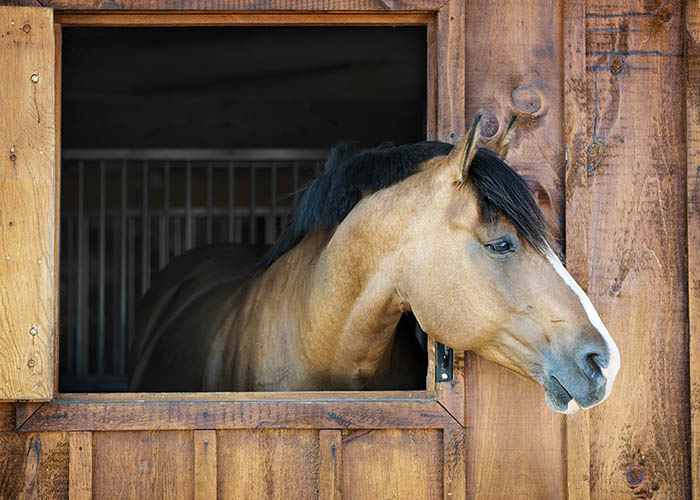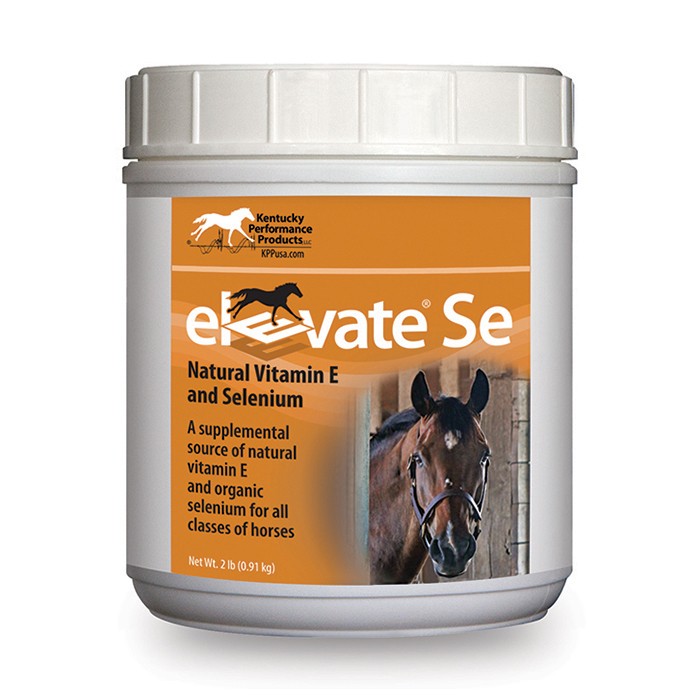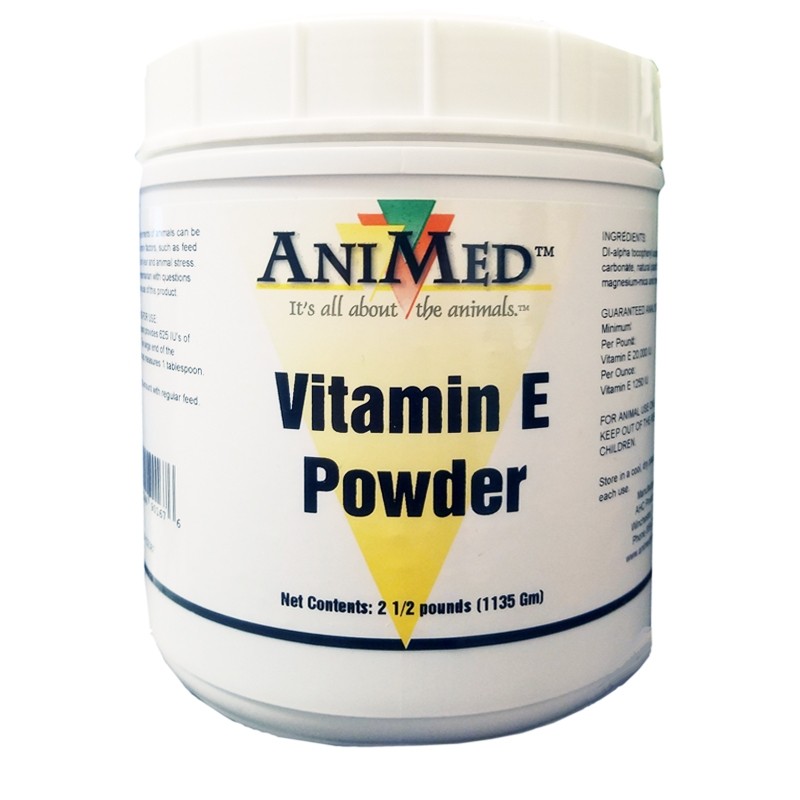
Vitamin E is an essential component of your horse’s diet. Yet, many horses are not receiving adequate amounts in their diet and need additional supplementation. With the large number of vitamin E supplements available, selecting the best supplement for your horse can be a confusing process. In this blog, we take a look at the various supplement options available and help you find the best vitamin E supplement for your horse.
The Facts
Vitamin E is a powerful antioxidant that neutralizes free radicals in the body and helps to protect cell membranes. It plays an important role in the cardiovascular system, immune system, muscular system, and reproductive system of your horse. We encourage you to learn more about this essential vitamin and the effects of vitamin E deficiency on our blog post, The Inside Scoop on Vitamin E.
A naturally occurring vitamin, vitamin E is found in lush, green grass. Unfortunately, horses who do not have access to pasture and/or horses in the Northeast who only have green grass for a few months out of the year may not be able to meet their dietary requirements with pasture alone. In order to meet their horse’s needs, many equestrians turn to vitamin E supplements or supplements that include high levels of vitamin E. Even some horses with access to green pasture required additional supplementation, high level performance horses and breeding stock are also prime examples of horses that need additional vitamin E in their diets. Working with your veterinarian, you can determine via blood testing if your horse requires more vitamin E than they are ingesting naturally.
Natural vs. Synthetic
One of the first questions customers often ask us when shopping for vitamin E supplements is, “What is the difference between natural and synthetic vitamin E?” This is an important distinction that has a large effect on the effectiveness and cost of the supplement. Christina Cassano, DVM, an intern veterinarian at New England Equine Medical and Surgical Center in Dover, NH, explains, “Vitamin E is supplemented as alpha-tocopherol which is the most bioactive form in animals.” However, there are two types of alpha-tocopherol, natural and synthetic.
Natural Vitamin E supplements are made from a plant-based version of the vitamin (d-alpha-tocopherol acetate). Many studies have shown that natural vitamin E is more rapidly absorbed into the bloodstream and is able to be better utilized by the horse’s body. According to Kentucky Performance Products, the manufacturers of Elevate SE, current research is reflecting that natural supplements are two to three times more potent than synthetic supplements for horses. Natural vitamin E supplements are appropriate for all horses, but are especially recommended for horses with high vitamin E requirements such as broodmares, performance horses, and horses who are vitamin E deficient.

Kentucky Performance Products Elevate SE, 2 lb
$59.99
On the other hand synthetic vitamin E supplements also have therapeutic benefits. This petroleum-based vitamin (dl-alpha-tocopherol acetate) must be fed in greater quantities than its natural counterpart, yet it is still extremely economical even taking the increased serving size into consideration. Synthetic supplements, such as Animed Vitamin E Powder, are a popular addition to the diets of pleasure horses who may not need as much supplementation.

AniMed Vitamin E Powder, 2.5 lb
$14.89
Pellets vs. Powder
When it comes to choosing supplements, pellets and powders each offer their own set of virtues. Normally, what you choose will depend on your horse’s individual preferences, however, there are some important distinctions. Both powder and pelleted supplements are designed to be fed daily; when it comes to supplementation, consistency in feeding is key to the success of your program. Vitamin E supplements are available in both pelleted and powdered formulations.
Traditionally, pelleted supplements appeal to picky eaters and mix well into their serving of grain. Some horses will even eat pellets plain, making them a great choice for horses on grain-free or forage-forward diets.
Powder supplements tend to be purer and lack the fillers of pelleted supplements. Some supplements, such as high fat supplements, are not able to be pelleted due to the chemical makeup and must be manufactured as powders. Some equestrians prefer to use powders because they can be mixed with a small amount of water and administered to their horse via syringe in the form of an oral paste.
Added Ingredients
Some vitamin E supplements also include additional ingredients which should be carefully considered when choosing the best option for your horse. A common addition is selenium, another mineral that is commonly found in green grass. Just like vitamin E, many horses in New England are deficient in this essential mineral due to the short grazing season. Many horses benefit from selenium supplementation and there is a reason that these combination supplements are so popular. We carry both natural vitamin E and natural vitamin E supplements that contain selenium, such as Elevate SE and Vita-Flex E & Selenium respectively. Please Note: If you are currently feeding your horse a grain that is fortified with selenium or if your horse is receiving selenium from an alternative source, these supplements are not recommended because toxicity may occur.
Other multivitamin supplements, such as Grand Vite, contain vitamin E in addition to a full panel of vitamins and minerals. These are popular for horses who are not eating a full serving of fortified grain and therefore may not be receiving their dietary requirements. When using these supplements, make sure that you take an overview of your horse’s full diet to avoid the potential for over supplementation.
Supporting your horse’s health with a vitamin E supplement is extremely important, especially if you live in the Northeast. If you have any questions regarding the various supplement options that we carry or would like assistance choosing the best supplement for your horses, we invite you to speak to a highly-trained member of our friendly sales staff. Contact us today to set up a complimentary equine nutrition consultation to ensure that your horse is meeting all of their dietary requirements. For questions regarding your horse’s health and testing for vitamin deficiencies, we encourage you to reach out to your veterinarian.
